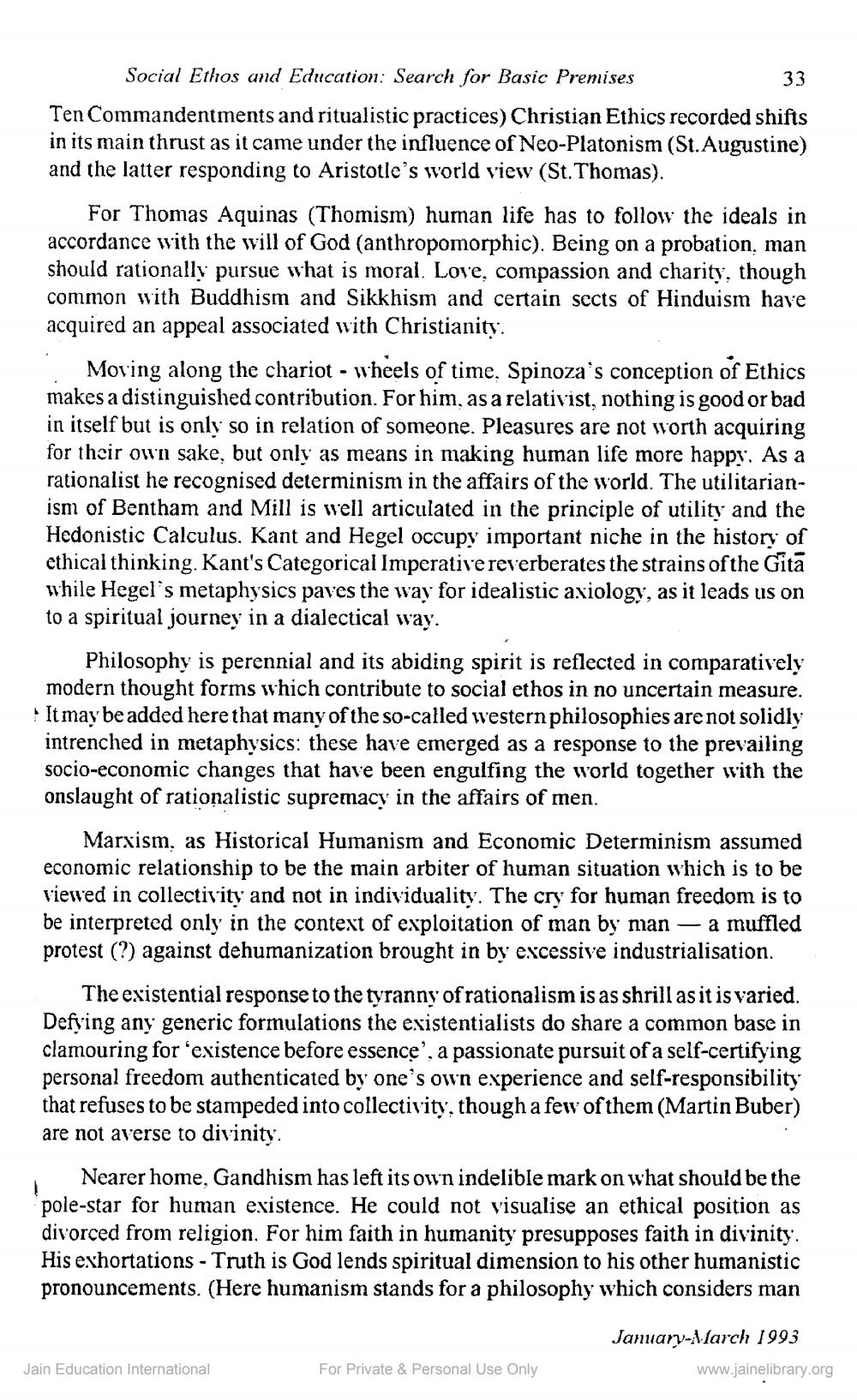________________
Social Ethos and Education: Search for Basic Premises
33 Ten Commandentments and ritualistic practices) Christian Ethics recorded shifts in its main thrust as it came under the influence of Neo-Platonism (St. Augustine) and the latter responding to Aristotle's world view (St. Thomas).
For Thomas Aquinas (Thomism) human life has to follow the ideals in accordance with the will of God (anthropomorphic). Being on a probation, man should rationally pursue what is moral. Love, compassion and charity, though common with Buddhism and Sikkhism and certain sects of Hinduism have acquired an appeal associated with Christianity.
Moving along the chariot - wheels of time, Spinoza's conception of Ethics makes a distinguished contribution. For him, as a relativist, nothing is good or bad in itself but is only so in relation of someone. Pleasures are not worth acquiring for their own sake, but only as means in making human life more happy. As a rationalist he recognised determinism in the affairs of the world. The utilitarianism of Bentham and Mill is well articulated in the principle of utility and the Hedonistic Calculus. Kant and Hegel occupy important niche in the history of ethical thinking. Kant's Categorical Imperative reverberates the strains of the Gita while Hegel's metaphysics paves the way for idealistic axiology, as it leads us on to a spiritual journey in a dialectical way.
Philosophy is perennial and its abiding spirit is reflected in comparatively modern thought forms which contribute to social ethos in no uncertain measure. It may be added here that many of the so-called western philosophies are not solidly intrenched in metaphysics: these have emerged as a response to the prevailing socio-economic changes that have been engulfing the world together with the onslaught of rationalistic supremacy in the affairs of men.
Marxism, as Historical Humanism and Economic Determinism assumed economic relationship to be the main arbiter of human situation which is to be viewed in collectivity and not in individuality. The cry for human freedom is to be interpreted only in the context of exploitation of man by man - a muffled protest (?) against dehumanization brought in by excessive industrialisation.
The existential response to the tyranny of rationalism is as shrill as it is varied. Defying any generic formulations the existentialists do share a common base in clamouring for 'existence before essence'. a passionate pursuit of a self-certifying personal freedom authenticated by one's own experience and self-responsibility that refuses to be stampeded into collectivity, though a few of them (Martin Buber) are not averse to divinity.
Nearer home, Gandhism has left its own indelible mark on what should be the pole-star for human existence. He could not visualise an ethical position as divorced from religion. For him faith in humanity presupposes faith in divinity. His exhortations - Truth is God lends spiritual dimension to his other humanistic pronouncements. (Here humanism stands for a philosophy which considers man
January-Alarch 1993
Jain Education International
For Private & Personal Use Only
www.jainelibrary.org




